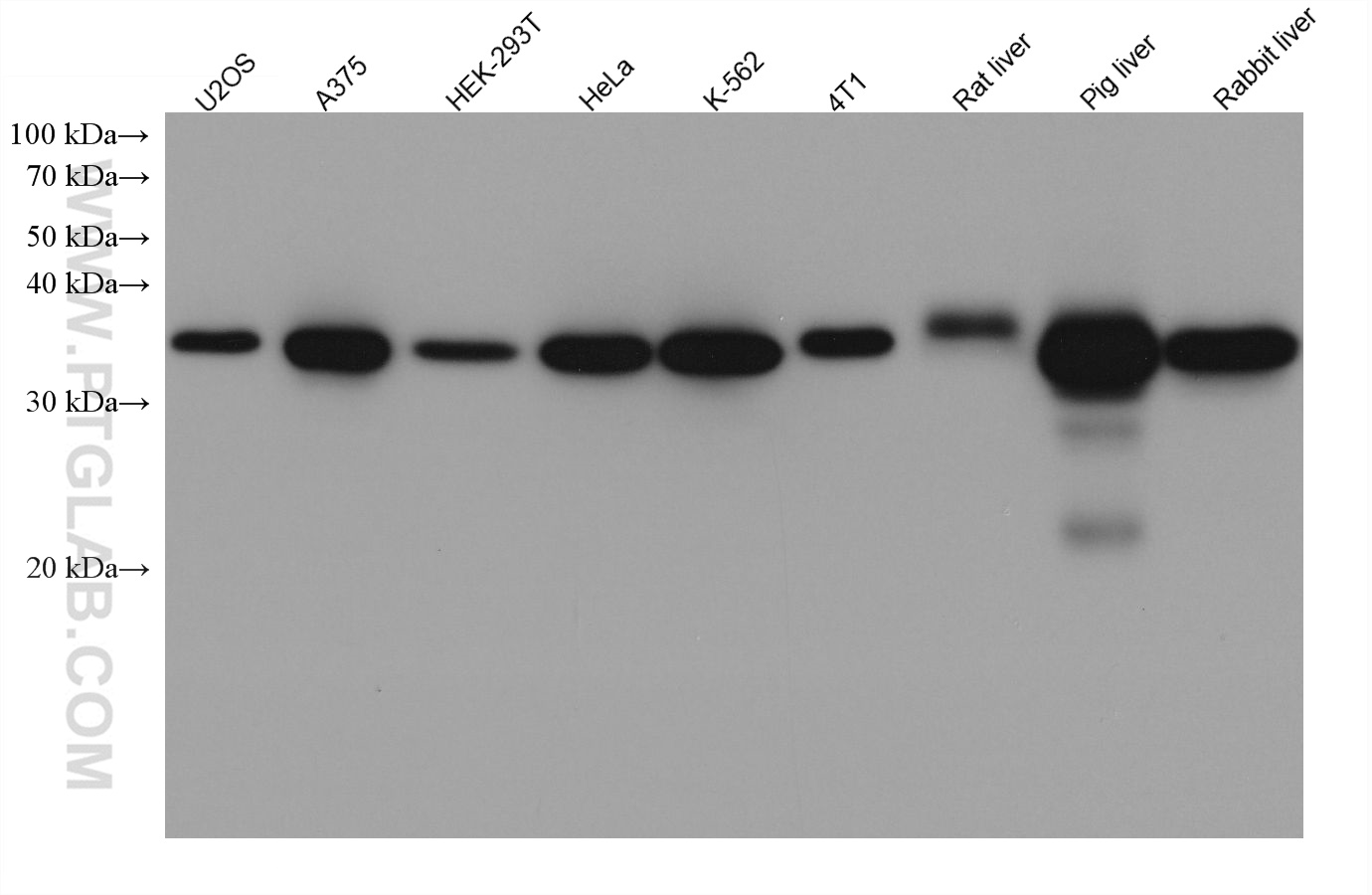验证数据展示
经过测试的应用
| Positive WB detected in | U2OS cells, A375 cells, HEK-293T cells, HeLa cells, K-562 cells, 4T1 cells, rat liver tissue, pig liver tissue, rabbit liver tissue |
推荐稀释比
| 应用 | 推荐稀释比 |
|---|---|
| Western Blot (WB) | WB : 1:5000-1:50000 |
| It is recommended that this reagent should be titrated in each testing system to obtain optimal results. | |
| Sample-dependent, Check data in validation data gallery. | |
产品信息
67772-1-Ig targets GALE in WB, ELISA applications and shows reactivity with Human, Mouse, Rat, Pig, Rabbit samples.
| 经测试应用 | WB, ELISA Application Description |
| 经测试反应性 | Human, Mouse, Rat, Pig, Rabbit |
| 免疫原 | GALE fusion protein Ag6571 种属同源性预测 |
| 宿主/亚型 | Mouse / IgG2b |
| 抗体类别 | Monoclonal |
| 产品类型 | Antibody |
| 全称 | UDP-galactose-4-epimerase |
| 别名 | FLJ95174, FLJ97302, Galactowaldenase, GALE, SDR1E1, UDP galactose 4 epimerase, UDP glucose 4 epimerase |
| 计算分子量 | 38 kDa |
| 观测分子量 | 38 kDa |
| GenBank蛋白编号 | BC050685 |
| 基因名称 | GALE |
| Gene ID (NCBI) | 2582 |
| RRID | AB_2918537 |
| 偶联类型 | Unconjugated |
| 形式 | Liquid |
| 纯化方式 | Protein A purification |
| UNIPROT ID | Q14376 |
| 储存缓冲液 | PBS with 0.02% sodium azide and 50% glycerol , pH 7.3 |
| 储存条件 | Store at -20°C. Stable for one year after shipment. Aliquoting is unnecessary for -20oC storage. |
背景介绍
GALE(Galactowaldenase) is also named as UDP-glucose 4-epimerase, UDP-galactose 4-epimerase, and belongs to the sugar epimerase family. UDP-galactose 4-epimerase catalyzes the interconversion of UDP-glucose and UDP-galactose during normal galactose metabolism. In humans, deficiencies in this enzyme lead to the complex disorder referred to as epimerase-deficiency galactosemia(PMID:10801319).It can exsit as a homodimer(PMID:8931134).
实验方案
| Product Specific Protocols | |
|---|---|
| WB protocol for GALE antibody 67772-1-Ig | Download protocol |
| Standard Protocols | |
|---|---|
| Click here to view our Standard Protocols |
